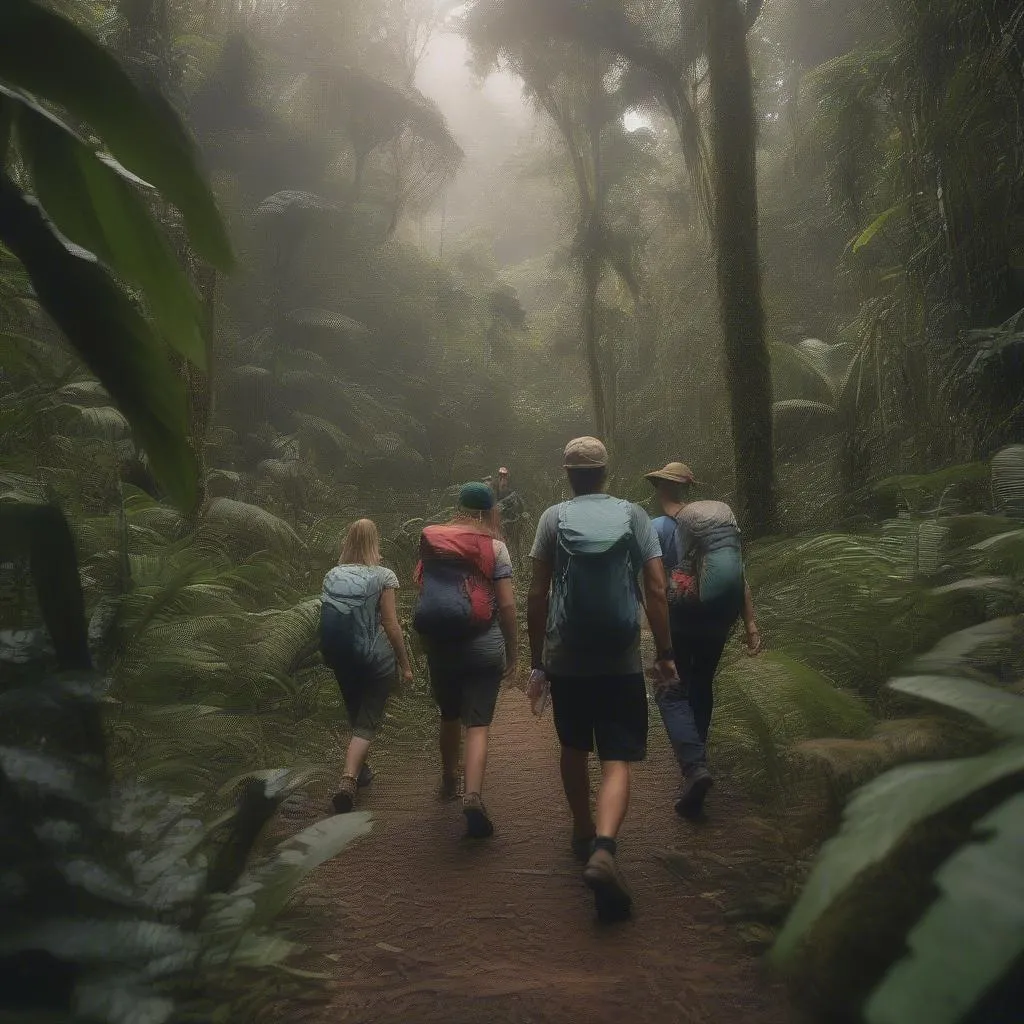Have you ever dreamt of exploring a pristine beach in Bali or hiking through the lush rainforests of the Amazon? Travel has the power to connect us with diverse cultures, breathtaking landscapes, and unique experiences. But what if we could explore our world in a way that preserves its beauty and benefits local communities? That’s where sustainable tourism development comes in.
Understanding Sustainable Tourism Development
Sustainable tourism, also known as responsible tourism, is about more than just minimizing our environmental footprint. It’s a holistic approach to travel that considers the long-term well-being of a destination, encompassing its environment, society, culture, and economy.
Imagine visiting a small village nestled in the Vietnamese countryside. Sustainable tourism means:
- Protecting the Environment: Minimizing pollution and waste, conserving water and energy, and protecting natural ecosystems. Think eco-friendly accommodations powered by solar energy, using reusable water bottles, and choosing tour operators committed to conservation efforts.
- Supporting Local Communities: Contributing to the local economy by purchasing local crafts, dining at family-run restaurants, and choosing accommodations that provide fair wages and working conditions.
- Preserving Culture and Heritage: Respecting local customs and traditions, engaging with local communities in a meaningful way, and supporting efforts to preserve historical sites and cultural practices. Picture yourself learning a traditional Vietnamese craft from local artisans, or attending a cultural performance that showcases the village’s rich heritage.
Why is Sustainable Tourism Development Important?
The tourism industry plays a significant role in the global economy, but it can also put a strain on resources and impact local communities. Sustainable tourism development aims to address these challenges by:
- Conserving Natural Resources: Protecting biodiversity, reducing carbon emissions, and promoting responsible waste management.
- Generating Economic Opportunities: Creating jobs, supporting local businesses, and ensuring that tourism benefits local communities.
- Promoting Cross-Cultural Understanding: Fostering respect for different cultures and creating opportunities for meaningful cultural exchange.
 Hiking in the Amazon rainforest
Hiking in the Amazon rainforest
 Traditional Vietnamese crafts in a village
Traditional Vietnamese crafts in a village